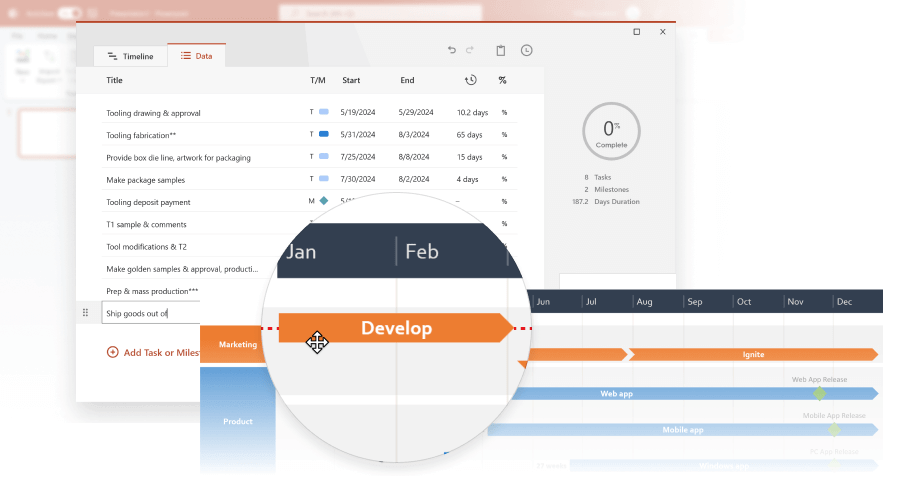Insightful Chronicles
Exploring the world through news and stories.
Project Management Tools: Your Team’s New Favorite Sidekick
Discover the ultimate project management tools that will transform your team's productivity—your new favorite sidekick awaits!
Top 5 Project Management Tools That Will Transform Your Team's Workflow
In today’s fast-paced business environment, effective teamwork is essential, and the right project management tools can significantly enhance your team’s workflow. Here are the Top 5 Project Management Tools that can transform how your team collaborates and executes tasks:
- Trello: Ideal for visual project management, Trello employs boards, lists, and cards to help track tasks and progress.
- Asana: Known for its clean interface, Asana allows teams to set goals, assign tasks, and keep track of deadlines effortlessly.
- Monday.com: This tool prides itself on flexibility and customization, enabling teams to tailor their workflows according to specific project needs.
- ClickUp: With its all-in-one project management capabilities, ClickUp combines task management with time-tracking features, making it a powerful ally for productivity.
- Jira: Particularly favored by software development teams, Jira facilitates agile project management and bug tracking with its advanced features.

How to Choose the Right Project Management Tool for Your Team
Choosing the right project management tool for your team can significantly impact productivity and collaboration. Start by identifying your team's specific needs; consider factors such as the size of your team, the complexity of your projects, and the critical features you require, such as task assignment, deadline tracking, or communication functionalities. Conduct a thorough evaluation of the available options, making use of free trials to test their usability and efficiency. A handy way to organize your findings is to create a comparison chart that lists each tool's features, costs, and user feedback, which can help streamline the decision-making process.
Once you've narrowed down your choices, involve your team in the decision process to ensure that the selected tool aligns with their workflows. Consider implementing a pilot program with your top choice to assess its effectiveness in real-time. During this phase, solicit feedback from your team about their experience with the project management tool, focusing on ease of use and any functional limitations they encounter. Remember, the goal is to enhance collaboration and efficiency, so prioritize a tool that not only meets your current requirements but also offers scalability for future projects.
Is Your Team Using the Best Project Management Tools? Here’s How to Find Out
In today's fast-paced work environment, having the right project management tools is essential for boosting productivity and collaboration within your team. To determine if your team is using the best project management tools, start by assessing your current workflow and identifying any pain points. Create a list of the features that are most important to your team, such as task assignment, deadline tracking, and integration with other software. This will serve as a benchmark as you explore available options.
Next, gather feedback from your team members regarding their experiences with the existing tools. Organizing a roundtable discussion or conducting a brief survey can provide valuable insights. Ask questions like: What features do you find most useful? and What obstacles are you facing with the current tools? Based on this feedback, you can evaluate whether your existing tools meet your needs or if it's time to consider alternative options that may offer better functionalities and improve overall efficiency.